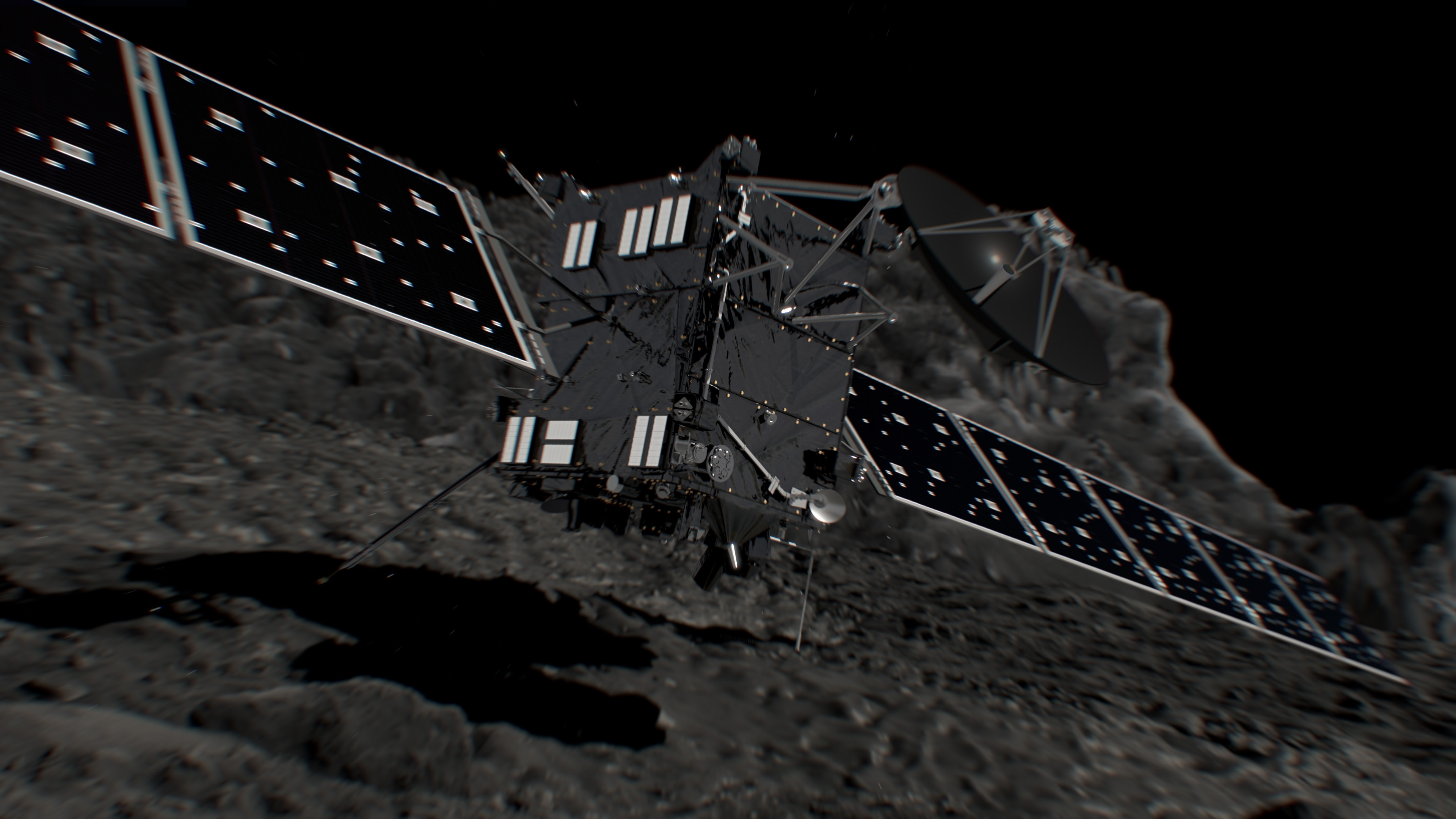How to watch the final hours of the Rosetta comet probe
Tune in this morning

This morning, about 720 million kilometres from Earth, a robot will crash into a space rock. The robot in question is the European Space Agency's Rosetta probe, and the rock is the duck-shaped comet 67P/Churyumov–Gerasimenko, which it's been orbiting since November 2014.
In that time, Rosetta has sent back a wealth of data. Thanks to its observations, we know so much more about the nature of comets than we did beforehand. The surface of 67P was much more detailed than expected, and also full of holes - about 70% of its volume is empty space.
We've also learnt that it probably wasn't comets that first brought water to Earth - though they may have brought some of the necessary ingredients for life. Analysis of the cloud of dust and gas surrounding 67P shows traces of amino acids - the chemical building blocks of life.
Last of its Fuel
But Rosetta's mission is now at an end. Having swung around the Sun, it's now headed out towards Jupiter and its solar panels are no longer getting enough juice. With the last of its fuel, it'll be landed not-so-gently on the surface of its comet, with confirmation expected at about midday today.
You can watch, if you like. The European Space Agency will be live-streaming the grand finale of the mission from about 11:30am at rosetta.esa.int. They'll go over the last few commands and go in-depth into the mission's triumphs. The spacecraft will be taking photos as it descends, and the last one will arrive - around 15 metres from the surface - about 40 minutes after the end of the mission.
A Psychological Thing
Then, silence. Rosetta's mission will be over - left resting on the surface of 67P forever. "We could have abandoned it in space or let it bounce off the comet and just switched it off. It wouldn't have created any problem," Andrea Accomazzo, the ESA's spacecraft operations manager, told the Guardian. "Landing it is more a psychological thing."
There's still plenty of data to analyse, of course, so researchers will be working on the Rosetta mission for many years to come. The European Space Agency, meanwhile, has its sights set on the future. The agency will be launching a Mars rover in 2020, to hunt for life on the Red Planet.
Sign up for breaking news, reviews, opinion, top tech deals, and more.
- Duncan Geere is TechRadar's science writer. Every day he finds the most interesting science news and explains why you should care. You can read more of his stories here, and you can find him on Twitter under the handle @duncangeere.
